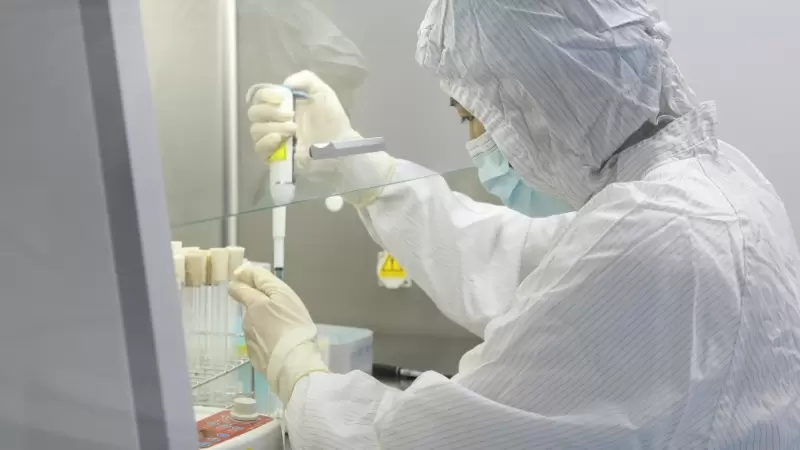 Article source:Kexing Biopharm
Article source:Kexing Biopharm Jan 03,2025
Jan 03,2025 View:
2431
View:
2431
Synthetic biology is an emerging interdisciplinary field that integrates knowledge and techniques from biology, genomics, engineering, and informatics. Its core objective is to use engineering approaches to design, construct, and optimize standardized biological parts and modules, thereby modifying existing natural biological systems or creating entirely new artificial life forms to endow them with predetermined functions. This field has garnered global attention since the early 21st century and is considered one of the top ten technologies that will change the world.
The concept of synthetic biology can be traced back to the 1980s when Barbara Hobom first used the term to describe genetically engineered bacteria created through recombinant DNA technology. Since then, synthetic biology has evolved from a conceptual starting point into a global research field, exerting a profound influence on various sectors, including biomedicine, agriculture, industrial production, and energy conversion.
Synthetic biology not only drives innovation in biotechnology but also promotes global cooperation and knowledge sharing. Organizations like SynBio Alliance have established online platforms to facilitate the application of research outcomes and technological innovation. These platforms encourage collaboration among researchers, engineers, and policymakers worldwide to explore the potential and prospects of synthetic biology. Kexing Biopharm has been adhering to a platform based development model driven by "innovation+internationalization", while focusing on long-term value exploration, actively seeking breakthroughs in cutting-edge biotechnology fields, and engaging in research and development of synthetic biotechnology and achievement transformation.
A significant branch of synthetic biology, bottom-up synthetic cell research, focuses on constructing artificial cells capable of performing life functions from the most basic molecular components. The goal is not only to create structures that mimic natural cells but also to gain a deeper understanding of the essence of life through this process.

The rapid development of nanotechnology has brought synthetic cell research closer to nano-biotechnology. Nanotechnology offers the possibility of precisely manipulating molecules and nanoscale structures, making it possible to construct key steps in the assembly, signal transduction, and material transport processes that mimic natural cells.
A recent study published in Cell has, for the first time, resolved the three-dimensional structure of yeast fatty acid synthase (FAS) with unprecedented resolution (1.9 Å). This research provides insights into the large multi-enzyme complexes that catalyze fatty acid synthesis in yeast and higher organisms, despite the structural differences in these molecular machines across different organisms.
Synthetic biology has also made strides in reprogramming cellular aging processes. A study published in Science demonstrated that by designing a synthetic gene oscillator within yeast cells, the lifespan was extended by 82% compared to normally aging yeast cells. This discovery could potentially lead to the design of synthetic genetic circuits that promote longevity in more complex organisms.
Another groundbreaking study published in Cell engineered a synthetic differentiation circuit in Escherichia coli to suppress mutant takeover. This circuit mimics the production of synthetic analogs of stem cells, progenitor cells, and differentiated cells. The key innovation lies in coupling differentiation with the production of an essential enzyme, putting non-differentiating mutants at a disadvantage.
Synthetic biology's applications are vast and varied, spanning medical health, chemicals, materials, energy, agriculture, food, and more. In the medical field, synthetic biology is used in innovative therapies, in vitro diagnostics, medical consumables, drug component production, and pharmaceutical enzymes. In the chemical industry, it is used for materials and chemicals, industrial enzymes, and biofuels, optimizing production capabilities and efficiency. In agriculture, it involves crop yield increase, pest control, animal feed, and crop improvement. In the food sector, it includes meat and dairy alternatives, beverages, food safety, and flavorings.
Synthetic biology offers sustainable and environmentally friendly solutions for the bio-leather industry, which traditionally uses a large amount of chemicals and energy, producing significant waste and environmental impact. It can be used to produce bio-based raw materials by modifying microorganisms to produce specific proteins or peptides for synthetic leather materials.
In the food industry, synthetic biology enables the development of new methods for large-scale food production. It involves the use of cell cultures and precision fermentation to produce alternative proteins, synthetic rare natural products, microbial oils, and food additives, creating food products with controllable flavors, textures, and forms, leading to safer, more nutritious, and sustainable food acquisition methods.
Synthetic biology represents a new paradigm in life sciences, offering a transformative approach to biomanufacturing and the bioeconomy. As the field continues to evolve, it is poised to provide innovative solutions for global sustainability and drive the development of next-generation biotechnologies. The "Synthetic Biology Roadmap 2030: Driving the Engine of Next-Generation Biomanufacturing" serves as a critical reference for the future development of synthetic biology, highlighting its importance in shaping the scientific and industrial landscape of the coming decade